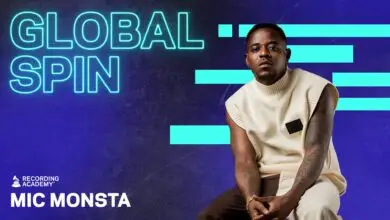Born in early 1970s in the streets of Brooklyn New York, the musical genre known as Hip-hop has grown and developed not only in the US music industry, but as an international phenomenon now existing in almost every country of the world and arguably the most popular musical brand of all time. This genre mainly characterised by the desire of expressing feelings and mostly criticising authority has always been based on words following a certain rhythm and rhyme scheme accompanied by beats and melodies (RAP). Hip-hop is a culture with multiple disciplines (DJ, Street Dance, beat boxing…) but most importantly RAP. No one carried the Hip-Hop culture more than rappers did. Hip-hop has had as founding fathers the likes of LL COOL J, KRS ONE,RAKIM,GRAND MASTER FLASH,NAS,RUN DMC,BUSTA RHYMES . Their success made other parts of the world to adopt the Hip-hop culture. From Europe with guys like Youssoupha and Kerry James to Africa with guys like M.I and Sarkodie etc…But then, how well do the other cultures represent or adapt the Hip-Hop culture?specifically Cameroon.
Bearing this introduction in mind our main aim is to analyse the current state of the Cameroonian Rap/Hip-hop industry.
IN CAMEROON
In a country where genres like Bikutsi, Makossa, Bensikin and many more reigned supreme, the late 90s and early 2000s witnessed the coming of urban music and Hip-hop depicted by rap skills in Cameroon. This style pioneered by MC’s such as KROTAL, VALSERO, BANTOU PO-SI represented the deep desire to express thoughts in a way the youths could relate to with the street style baggies, sweatshirts and ladies that made up the music videos. Valsero for instance represented the original hip-hop the most by using it to crticise society like 2PAC had done before him. His infamous “letter” to the President contained a deep storytelling ability as he used his rap skills to actaully get a message passed on. Something that has unfortunately being disappearing with time.
When you talk Rap you talk words and stories. Jovi with his “H.I.V” (Humanity Is Vanishing) album which is for me the best 237 Rap album EVER quite simply showed us all what true Hip-Hop was all about. Words, rhymes, skills, good beats and most importantly stories that made SENSE!!!. By the time the 2010s came by all the positives gradually began to fade away. I ask, is it the artists who lack inspiration? Or is it the industry itself that forces this change?
It is a verbal exaggeration nowadays to talk about the existence of Hip-Hop in Cameroon. Rapping on an Afro beat does not make you a Hip-Hop Artists neither does having Rap beats automatically make you a good rapper. A good rapper is first of all a poet, a philosopher and storyteller.
The irony is in 2019 Cameroon probably has the greatest number of Hip-Hop talents based on skill: (Ko-C, Boy Tag, Askia, Tenor, Young Holiday, Fly Habit, Neillex, Mic Monsta, Bryant Stunna, Young Meagan…) but it is equally the era in which Rap and Hip-Hop dies in Cameroon gradually due to COMMERCIAL MUSIC.
In a country where Hip-hop is doing fine it is inconceivable that
1- Almost no Cameroonian rapper can “easily” be the best in Africa in terms of skill.
2- “The face that runs place” gets lyrically destroyed in features with both Ghana and S.A’s best (Sarkodie and A.K.A) in his own album.
3- All the best “Self proclaimed” rappers in the country sing more than they actually rap and do Afro more than they do Hip-hop.
4- There are never any beefs between rappers.
These points prove one thing: 237 HIP-HOP IS SLEEPING and might very soon die to the benefit of Commercial music. The problem with commercial music is that it makes the artists richer but the audience poorer in musical experience and versatility. For instance when Boy Tag releases Rap god cover and two weeks later releases Cent pour Cent, you definitely have heard songs.like Cent pour Cent many times before but rarely have you heard a rapper in Cameroon spit bars like in Rap god. Not only that but it isn’t difficult to see where the artists performs the best.
Is it normal that guys like Ko-C and Boy Tag became popular and loved due to their rap skills but end up doing less and less of what they were initially loved for.
The key difference between the oroginal Hip-hop and today’s is that the fact that what they did was really a reflection of who they are enabled their music and punchlines to stand the test of time…something that really can’t be said of our industry where once you’ve lit up the dance floors a little bit you quickly become obsolete.
The counter arguments will obviously be:
1- Need to put food on the table
2- Promote the African culture more
3- Not bore people with many words since they want to dance….etc etc…
However way we look at this it remains relative but then every genre has it’s laws and fundamentals, so does Hip-hop and we can’t talk of that in cases where those norms and fundamentals are not followed adequately. Maybe with time there will be more of pure hip-hop, raw rap and deep stories to help community in 237 but as of now the Cameroonian Hip-hop industry is sick but not dead.
